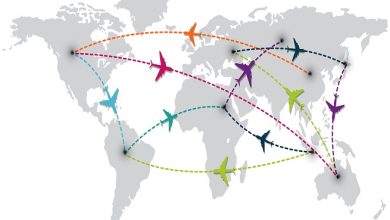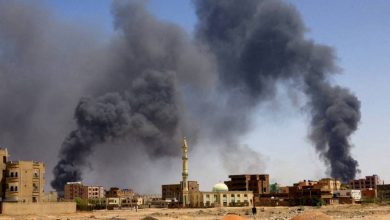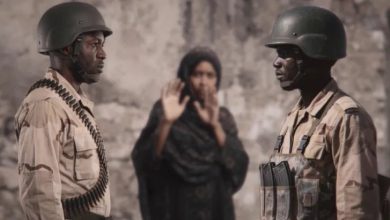Introduction to Gezira State

Sudan Events – Report
Gezira State, located in central Sudan to the south of Khartoum, is distinguished by being the second most populous state (before the beginning of the armed conflict) in Sudan, with a population of about 5,000,000 people.
Urban centers:
The capital, Wad Madani, includes no less than seven urban areas: Al-Hasahisa, Al-Manjil, Wad Rawaha, Rifa’a, Al-Kamilin, Al-Qurashi 24, and Umm Al-Qura.
Interestingly, less than 20% of the population resides in these urban centres, while the remaining 80% live in rural areas (villages).
Agricultural importance:
Gezira State hosts some of the largest agricultural projects in Sudan, which the Commissioner oversees.
It is worth noting that the cotton project, which was established by the British during the colonial era, features an irrigation system capable of producing up to 65% of Sudan’s cotton. It also supplied the Lancashire Cotton Mill in Britain.
The displaced and the humanitarian axis:
Before the attack on Gezira by the RSF. The state hosted about 4 million internally displaced people, many of whom come from Khartoum and River Nile states.
Wad Madani quickly turned into an operational center for humanitarian workers fleeing Khartoum State after the outbreak of armed conflict in Sudan on April 15, 2023.
Challenges and escalation of violence:
At first, Gezira state enjoyed relative peace. However, December 2023 marked a turning point when residents began reporting abuses committed by the RSF and allied militias.
The situation has deteriorated since then, casting a shadow over this once peaceful region.
Incidents of attacks in Gezira state
In the turbulent landscape of Gezira State, a series of horrific events unfolded:
Initial attack by the Rapid Support Forces (RSF):
On December 13, 2023, the RSF launched an attack on Gezira State. Their doubts? that the Sudanese Armed Forces and Islamist jihadists (also known as the Al-Baraa bin Malik militia) were mobilizing to annex them from southern Khartoum.
The RSF advanced from the southern direction, and gradually reached Wad Madani by December 18, 2023. They completely controlled Gezira state, except for Al-Manaqil locality.
Civilian attacks continue:
Although the RSF deployed small groups of about nine men led by an officer at various checkpoints across Gezira, attacks on civilians continued.
For example, a group of four armed men, some wearing civilian clothes and others wearing RSF uniforms, arrived on Gezira on motorcycles. Disguised as military intelligence, they patrolled several villages before leaving. Later, they returned in larger numbers, riding motorcycles and military vehicles, and attacked civilians.
February 6, 2024: Al-Hasahissa under siege:
On this fateful day, an armed group from the RSF launched an attack on the localities of the city of Al-Hasahissa, including Wad Al-Balila, Umm Dawana, Um Maliha, Abu Talih, and Al-Futtais.
The attack led to the death and injury of a number of citizens.
The next morning, residents of the village of Futais confronted the RSF commander at a checkpoint and filed complaints about the attacks. Unfortunately, the commander ignored their concerns and directed them to the RSF office in Hasahisa.
Heinous killings:
In another horrific incident, three young men met a horrific fate at the hands of the RSF.
These events paint a stark picture of violence, fear and loss in Gezira State.
Attacks on the village of Al-Futais (Al-Safa(:
The village of Al-Futais is located 40 km east of Al-Hasahissa and has a population of about 30 thousand people, most of whom are farmers. On February 6, 2024, armed officers from the RSF descended on the village of Al Futais. These groups roamed the area and fired gunshots into the air with the aim of dispersing the youth who set up roadblocks and formed self-defense units. The youth organized themselves into teams of 15 to 20 people, armed with sticks and stones, and patrolled the village and prepared to repel any RSF attacks. They also strongly warned residents of possible raids by the RSF, and encouraged them to protect their homes.
This strategic approach significantly reduced the pace of RSF attacks on the village of Al-Futais, until February 14, 2024, when the RSF launched a large-scale attack. Despite their determination, about 200 young men armed with sticks were eventually intimidated with rifles and forced to admit defeat.
On February 15, 2024, a group of four armed RSF officers conducted a brief spying mission in the village while riding motorcycles. Later the same day, around noon, about 90 additional RSF officers arrived in the village, this time on fully armed motorcycles and Land Cruisers equipped with heavy machine guns. The sudden influx of heavily armed individuals increased tension among residents.
It is unfortunate that Mr. Omar Siddiq, 30 years old, was shot and the group of vigilant youth were shot while observing the situation from the rooftop. Mr. Sadiq lost his life instantly, while a number of other young men were injured. In response to the escalating danger, the RSF eventually withdrew from the village, coinciding with the displacement of residents in search of safer areas to the east, away from the areas under the control of the RSF.
On February 16, 2024, a group of armed RSF descended on the village of Futais with unyielding force. They were riding approximately 90 motorcycles and Land Cruisers, storming the streets and firing shots into the air. Their arsenal included automatic rifles, pistols and knives, which they used threateningly to intimidate villagers.
Their initial target was the local market. As they advanced, they brutally attacked civilians, beating them with sticks, whips and rifle butts, a merciless display that spared no one, whether merchants or customers. Robbers ransacked stores and looted basic items such as sugar, onions, lentils, wheat, maize flour and even livestock. The once thriving market is in ruins, with its traders suffering huge losses as they are forced to abandon their businesses.
But the destruction did not end there. Other opportunistic groups followed suit, looting what was left of the market. At approximately 11:00 a.m., members of the RSF shifted their focus to residential areas, where they terrorized residents. At gunpoint, they stripped residents of their belongings, stealing money, mobile phones and even gold. Those who dared to resist faced brutal attacks, while those who were caught while fleeing were searched and robbed of their dignity. The village, which was once quiet and peaceful, now bears harsh signs of violence and dread. In response, women and children took refuge in the protective embrace of the surrounding farms. They huddled together and waited for the attackers to leave under cover of darkness before daring to return to their homes.
During the last week of March 2024, Mr. Muhammad Mubarak, 32 years old, a resident of Al-Futais village in Gezira State, was injured by a gunshot to his foot. The assailant was a member of the RSF who raided Mr. Mubarak’s house and demanded the dal harvest at gunpoint. After the perpetrators left, Mr. Mubarak was transferred to Al-Manjil Hospital, where he is currently receiving medical care.
On February 19, 2024, a masked armed man wearing civilian clothes targeted the family home of a 22-year-old girl in the village of Al-Futays. At gunpoint, the woman was forced to leave her family home and was taken to a nearby abandoned house. Fortunately, she was able to escape unharmed, as she encountered a group of mourners on their way to the cemetery. The woman’s family and other residents immediately went to a RSF checkpoint to report the incident. One of the officers promised to arrest the violator.
Raid of private residences in the village of Al-Futais:
The RSF raided the home of a Sudanese Armed Forces officer: The RSF raided the home of a Sudanese Armed Forces officer, where they found his military uniform and a hidden rifle. Despite the absence of the SAF officer, the other passengers – especially his son – were assaulted.
Raid on a 69-year-old woman’s home: In a separate incident, a group of RSF targeted the home of a 69-year-old woman, who was living there with her two daughters. At gunpoint, they demanded money and gold from the mother, who insisted she had nothing. To implement their demands, they threatened to kill one of her daughters.
Testimonies :
One witness testified that a group of RSF officers raided their home, specifically looking for their uncle, who fortunately escaped through the back door. The RSF recruited residents as spies and informants, many of whom were former convicts recently released due to the armed conflict. The witness personally knew two of these informants: Abu Dhabab and another named Jijizi.
On February 16, 2024, at approximately 8:00 p.m., approximately 15 armed RSF officers stormed the home of the witness’s cousin, where his extended family – most of whom were women – were staying. The RSF demanded money and gold, but the family, who identified themselves as peasant farmers, explained they had received neither. Male family members were forcibly taken outside to meet the RSF commander and were not allowed to return. A few hours later, another group of RSF arrived and asked why the family was still awake. The family responded that they usually sleep after evening prayers at 9:00 p.m. In a humiliating manner, one of the officers insulted them, referring to them as “Bulda Umjash wives,” a derogatory term related to the Sudanese Armed Forces. The RSF then headed to the next house, owned by another cousin and his wife. Unfortunately, the husband was severely beaten, and the attempted rape of his wife was thwarted when she managed to escape.
In addition, on April 16, 2023, after the outbreak of war in Khartoum, the Chahed family made the horrific decision to flee the city to their village in Gezira State. The Sudanese Air Force bombed RSF bases in residential areas, which directly affected civilians and their property. Although the Gezira seemed safe at first, the situation had changed radically, and now they were running for their lives.
A resident of the village of Al-Futais provided testimony recounting the events of February 16, 2024. On that fateful day, their village fell victim to a violent raid and looting. The perpetrators targeted essential items, including hospital equipment, medicines, solar panels and food. Meanwhile, the internet and power supplies were deliberately cut off, plunging the community into darkness and isolation.
In another horrific incident, a witness recounted that one morning, two of their cousins returned home and had been severely beaten. They were allegedly assaulted by members of the RSF who then took them to a mosque, where they remained hidden for agonizing hours before they were finally rescued. The scars of violence and fear were deeply etched in their lives.
Why attacks on civilians?
The situation in Gezira State, especially in the Hasahisa villages, remained relatively calm even after the outbreak of conflict in Sudan. For many Sudanese citizens, Gezira served as a safe haven – until December 18, 2023, when the RSF launched their first attacks on civilians. These brutal raids included breaking into homes and looting property. Unfortunately, this violence was an inevitable consequence of Sudan’s escalating armed conflict, as warring factions vied for control of territory.
The RSF’s control of Gezira State has encouraged Arab militias to actively join the conflict in support of the RSF
One human rights defender, originally from the Gezira, explained that the prolonged peace in the region was partly due to the RSF’s geographic unfamiliarity with the country. In addition, resourceful residents took measures to prevent the RSF from reaching the villages. They strategically opened water canals to farms through the villages of Amodam, Umm Maliha, Umm Dawana, and Abu Tleih, even as it threatened to over-irrigate and destroy crops. Villagers also organized groups of youth and prepared themselves to resist attacks, especially when the RSF began patrolling the area. But since the RSF took control of Gezira, internet services were disrupted for seven days, briefly restored, and then completely cut off on February 6, 2024. This deplorable situation has encouraged the RSF to escalate its violations against civilians.
Another human rights defender confirmed that while the RSF initially maintained discipline and followed the orders of their commander after seizing Gezira State in December 2023, the situation had changed dramatically by February 2024. Allied Arab militias, riding bicycles Motorcycles and driving Land Cruisers with special license plates, they arrived from Darfur. These militias showed blatant disregard for the orders of the RSF, and participated in widespread theft and looting of civilian property. Clashes between these militias and the RSF fueled the violence, ultimately encouraging other RSF members to participate in the raids. The once peaceful Gezira nation now bears the scars of conflict and suffering
April 26 events in the village of Al-Futais:
During the month of April, a state of calm prevailed in the village of Al-Futais after those attacks, and many families who had been displaced to the states of Gedaref and Sinnar returned to the village again.
The RSF attacked the village of Al-Futais again on 4/26/2024 for the purpose of looting and theft. This time, the forces attacked with great force, committing all forms of violations against the defenseless village citizen, including flogging, intimidation, terrorism, and harassment of women, up to attempts at rape. The militia also searched and robbed everyone. Houses were held at gunpoint, and they stole all the agricultural crops, even the solar energy that powers the water station, and the cars that they could not move, and burned them. This brutal and barbaric attack led to the death of citizen Hamza Hassan and the wounding of three other citizens by bullets.
The village of Al-Futais and its suburbs, and most of the villages of the state, are going through the most difficult times in their history, with systematic and continuous campaigns that have been going on for months by the RSF with the aim of impoverishing, displacing and displacing civilians starving people. As a result, we are now talking about thousands of citizens who suffer from extreme poverty and cannot afford a meal.
As a result of this violent attack this time, which was accompanied by major violations against citizens, all residents were forced to leave the village and flee towards the city of Al-Manaqil on foot.
Statistics indicate that more than 151 families were displaced to the city of Al-Manaqil, while others were displaced to the cities of Gedaref, Kassala, Abu Hamad, and Al-Damazin, and they are suffering from poor humanitarian conditions there.



